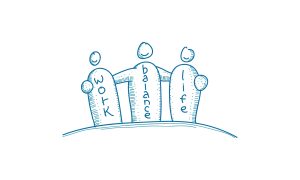By – James M. Katz, BA
In today’s fast-paced world, stress has become an unwelcome companion for many. As people struggle to balance work, relationships, and personal well-being, the demand for effective stress management consultant solutions continues to grow. This is where a stress management consultant steps in, offering expert guidance to help individuals and organizations navigate the choppy waters of modern life. These professionals bring a wealth of knowledge in stress reduction techniques and coping strategies, tailoring their approach to meet the unique needs of each client. Stress management consulting is all about helping people deal with stress in their lives. These stress consultants offer custom solutions and strategies to help clients manage stress and improve their overall well-being. They work with individuals, companies, and communities to build effective coping techniques and create a balanced lifestyle.
Stress management consultants play a crucial role in promoting healthier, more balanced lifestyles. They work with clients to identify sources of stress, develop personalized stress management programs, and provide ongoing coaching support. From teaching cognitive-behavioral stress management techniques to implementing workplace wellness initiatives, these experts are at the forefront of the battle against chronic stress. As we delve deeper into this field, we’ll explore the science behind stress, key qualities of effective consultants, and various strategies for different demographics, shedding light on how these professionals can help pave the way to a calmer, more fulfilling life.
Key Takeaways
- Stress management consultants provide personalized solutions to help individuals manage their stress.
- These professionals teach relaxation techniques and coping methods to their clients.
- Corporate stress relief programs can greatly improve employee well-being and productivity.
- Becoming a certified stress management consultant involves specific educational pathways and certifications.
- Staying updated with the latest research and trends in stress management is crucial for effective practice.
The Science of Stress: Understanding Its Impact on Mind and Body
Stress is a complex physiological and psychological response to perceived threats or challenges. It triggers a cascade of reactions in the body, affecting various systems and functions. Understanding the science behind stress is crucial for stress management consultants to develop effective strategies for their clients.
Physiological Effects of Stress
 When an individual faces a perceived threat, the hypothalamus, a small region at the base of the brain, sets off an alarm system in the body . This activation initiates the stress response, which involves the sympathetic-adreno-medullary (SAM) axis and the hypothalamic-pituitary-adrenal (HPA) axis.
When an individual faces a perceived threat, the hypothalamus, a small region at the base of the brain, sets off an alarm system in the body . This activation initiates the stress response, which involves the sympathetic-adreno-medullary (SAM) axis and the hypothalamic-pituitary-adrenal (HPA) axis.
The SAM axis quickly responds by releasing catecholamines, such as adrenaline and norepinephrine, into the bloodstream. These hormones cause immediate physiological changes:
1. Increased heart rate and blood pressure
2. Faster breathing
3. Enhanced energy availability
4. Heightened alertness
The HPA axis, on the other hand, produces a slower response by releasing corticotropin-releasing hormone (CRH) from the hypothalamus. This leads to the production of cortisol, the primary stress hormone, which has widespread effects on the body:
1. Increased blood sugar levels
2. Enhanced brain glucose utilization
3. Suppression of non-essential functions (e.g., digestion, reproduction)
4. Modulation of immune system responses
While these stress responses are adaptive in the short term, chronic activation can have detrimental effects on health. Prolonged exposure to stress hormones can disrupt almost all bodily processes, increasing the risk of various health problems, including:
• Cardiovascular issues (e.g., heart disease, high blood pressure, stroke)
• Digestive problems
• Immune system suppression
• Musculoskeletal tension and pain
• Sleep disturbances
• Weight gain
• Cognitive impairment
Psychological Consequences of Chronic Stress
Chronic stress not only affects physical health but also has significant impacts on mental well-being. The persistent activation of stress responses can lead to a range of psychological issues:
1. Mood disorders: Chronic stress is linked to an increased risk of developing anxiety and depression.
2. Cognitive function: Prolonged stress can impair memory, focus, and decision-making abilities.
3. Behavioral changes: Individuals under chronic stress may experience:
• Changes in appetite (overeating or undereating)
• Sleep disturbances
• Social withdrawal
• Increased risk of substance abuse (e.g., alcohol, drugs, tobacco)
4. Emotional instability: Chronic stress can lead to irritability, restlessness, and mood swings.
Understanding these physiological and psychological effects of stress is essential for stress management consultants to develop comprehensive and effective interventions for their clients. By addressing both the physical and mental aspects of stress, consultants can help individuals develop resilience and improve their overall well-being.
Key Qualities of an Effective Stress Management Consultant
Empathy and Active Listening
Effective stress management consultants possess a high level of empathy and active listening skills. These qualities enable them to create a safe and supportive environment for their clients. Empathy involves understanding and sharing the feelings of others, which is crucial when dealing with stressed individuals. By employing empathic listening, consultants can connect with their clients’ emotions and build trust, which is essential for effective stress management interventions.
Active listening techniques that stress management consultants should utilize include:
1. Reflecting what clients say by repeating or rephrasing their statements
2. Emphasizing the feelings behind the words and checking the accuracy of interpretations
3. Paying attention to body language
4. Asking open-ended questions to show interest in the client’s perspective
It’s important for consultants to avoid snap judgments and remain open-minded, as empathy involves seeing human beings as constantly evolving. By practicing these skills, consultants can create a judgment-free space for clients to experience their thoughts and emotions.
Problem-Solving Skills
Strong problem-solving abilities are essential for stress management consultants to help their clients effectively cope with stressors. Problem-solving in this context involves several key steps:
1. Identifying the problem: This requires a careful definition of the nature of the problem, which is crucial for determining how it can be solved.
2. Structuring the problem: This involves a deep dive into the issue to understand what’s going wrong and why, through careful observation, fact-gathering, and analysis.
3. Imagining solutions: After fully understanding the problem, consultants should engage in deep contemplation to bring powerful ideas to the surface.
4. Making decisions: This involves carefully considering the pros and cons of various possible solutions and deciding how they fit with the client’s goals.
5. Implementing the solution: This is where the decided course of action is put into play, often involving many steps and coordination.
6. Monitoring implementation: This crucial step ensures the success of the solution through ongoing evaluation.
Developing these problem-solving skills helps consultants approach challenges with less stress and more confidence. It also enables them to anticipate potential obstacles and develop contingency plans, giving clients time to make decisions in a calm and low-key environment.
Adaptability
Adaptability is a crucial quality for stress management consultants, as it enables them to adjust their approach to meet the unique needs of each client. Adaptability is the ability to adjust thoughts, emotions, and behaviors to changing situations and demands, which can help in coping with stress, overcoming challenges, and seizing opportunities.
Stress management consultants should understand that adaptability is not a static state but a dynamic and continuous process. This means that measuring and developing adaptability should be an ongoing practice. Consultants can use self-reflection techniques like journaling or coaching to review their experiences and learning outcomes, while also seeking ratings or reviews to gain different perspectives and insights.
By developing and applying adaptability, stress management consultants can experience the benefits of resilience, growth, and innovation in their practice. This quality enables them to tailor their stress management strategies to different demographics and situations, ensuring more effective interventions for their clients.
In conclusion, effective stress management consultants combine empathy, active listening, strong problem-solving skills, and adaptability to provide comprehensive support to their clients. These qualities enable them to understand clients’ needs, develop tailored solutions, and adjust their approach as necessary, ultimately helping individuals and organizations navigate the challenges of modern life and achieve a calmer, more balanced existence.
The Role of a Stress Management Consultant
Key Responsibilities
A stress management consultant helps people handle their stress better. They teach ways to relax and cope with stress. Their main goal is to reduce stress for their clients. They also work with companies to help employees manage stress at work.
Skills and Qualifications
To be a good stress management consultant, you need to know a lot about stress and how to manage it. You should be good at talking to people and understanding their problems. Many stress management consultants are also trained as counselors or life coaches.
Impact on Clients
Stress management consultants make a big difference in their clients’ lives. They help people feel better and more in control. This can improve both mental and physical health. Clients often feel happier and more relaxed after working with a consultant.
Personalized Stress Management Coaching
Tailored Stress Solutions
Every person faces different stressors, and a one-size-fits-all approach doesn’t work. Personalized stress management coaching focuses on creating unique plans that consider your specific stress triggers and goals. This way, you get the most effective relief.
Building Coping Techniques
Learning how to cope with stress is crucial. Our coaching helps you develop practical techniques to handle stress in your daily life. These methods are easy to use and can make a big difference in how you feel.
Reclaiming Control Over Life
Stress can make you feel like you’re not in control. With the right coaching, you can take back control and improve your overall well-being. You’ll gain the tools you need to manage stress and lead a happier, healthier life.
Integration of Stress Management Strategies
Diverse Areas of Application
Stress management strategies can be used in many parts of life, from work to personal relationships. These methods help people handle stress better and improve their overall well-being. By using these strategies, individuals can find balance and peace in their daily lives.
Benefits for Health Care Professionals
Health care professionals can greatly benefit from stress management strategies. These techniques can help them deal with the high levels of stress that come with their jobs. By managing their stress, they can provide better care to their patients and maintain their own health.
Community Impact
When stress management strategies are used in communities, the positive effects can be widespread. People who manage their stress well can contribute to a healthier, more supportive community. This can lead to a better quality of life for everyone involved.
Stress Management Strategies for Different Demographics
Techniques for Working Professionals
For many working professionals, stress has become an integral part of their daily lives. In fact, workers’ daily stress levels reached a record high in 2020. To combat this, professionals can employ several effective stress management techniques in the workplace:
1. Clarify expectations: Understanding job requirements is crucial for reducing stress. Professionals should seek clarification from supervisors whenever needed.
2. Focus on one task at a time: Multitasking can increase stress levels and reduce effectiveness. Concentrating on a single task at a time can led to better results and lower stress.
3. Minimize workplace conflicts: Avoiding controversial topics such as politics, religion, or gossip can help reduce potential sources of stress.
4. Create a comfortable work environment: Adjusting the workspace, including chairs, desks, and clothing, can significantly reduce physical discomfort and associated stress.
Approaches for Students and Young Adults
Students and young adults face unique stressors related to academic pressures, social challenges, and life transitions. A study by the American Psychological Association found that teens report stress levels similar to adults, with 30% feeling overwhelmed, depressed, or sad due to stress . To manage these challenges, students can:
1. Prioritize sleep: Aiming for at least 8 hours of sleep per night and taking power naps when needed can help reduce stress.
2. Engage in regular physical activity: Students who participate in regular physical activity report lower levels of perceived stress.
3. Practice breathing exercises: These can be done anywhere and are particularly useful before exams or presentations.
4. Use progressive muscle relaxation (PMR): This technique involves tensing and relaxing muscles to release physical tension.
5. Listen to music: Upbeat music can improve processing speed and memory, while relaxing music can help students recover more quickly from stressful situations.
Methods for Seniors
As people age, they face unique stressors related to health changes, relationships, finances, and living arrangements. To manage stress effectively, seniors can:
1. Stay physically active: Regular physical activity helps reduce blood pressure, ease arthritis pain, combat chronic illness, and lift mood. Even gentle movements like tai chi can make a significant difference.
2. Practice mindfulness: Engaging in deep breathing, positive visualization, and other mindfulness practices can help calm racing thoughts and create a sense of well-being.
3. Maintain social connections: Spending time with friends or family members who will listen can naturally calm and lower stress levels.
4. Engage in laughter therapy: Laughing can boost the immune system, lessen pain, and improve mood for extended periods.
5. Consider talk therapy: Long-term talk therapy, such as cognitive behavioral therapy, can help some people deal with stress by changing negative thought patterns.
By tailoring stress management strategies to specific demographics, individuals can more effectively cope with the unique challenges they face in different life stages and circumstances.
Holistic Approaches to Stress Management
Holistic stress management addresses stress from multiple perspectives, considering the mind, body, and spirit as interconnected components of overall well-being. This approach aims to develop inner peace and better physical health while identifying and addressing the root causes of stress. By incorporating various techniques and lifestyle changes, individuals can create a comprehensive strategy to manage stress effectively.
Nutrition and Stress Reduction
A balanced diet plays a crucial role in supporting a healthy immune system and providing the extra energy needed to cope with stressful events. Early research suggests that certain foods, such as polyunsaturated fats including omega-3 fats and vegetables, may help regulate cortisol levels. To optimize nutrition for stress management, consider the following:
1. Consume protein-rich meals at regular intervals to balance blood sugar levels and support adrenal health. Quality protein sources include nuts, seeds, beans, hemp and rice protein powder, algae, and wild mackerel.
2. Incorporate fermented foods to introduce probiotics to the gut, such as raw unpasteurized sauerkraut, dill pickles, coconut yogurt, kefir, and miso soup.
3. Ensure adequate intake of omega-3 fatty acids, which play an important role in adrenal health and brain behavior. Rich food sources include wild salmon, sardines, sprouted chia and flax seeds, and blue-green algae.
4. Stay hydrated by drinking 6-8 glasses of pure filtered water daily, and consider replacing caffeine and alcohol with green vegetable juices and calming herbal teas.
5. Incorporate high-fiber foods like oatmeal, nuts, beans, fruits, and vegetables, as high fiber intake has been associated with greater alertness and decreased perceived stress.
Exercise and Physical Activity
Regular physical activity is a powerful tool for stress management, offering both immediate and long-term benefits. Exercise reduces levels of the body’s stress hormones, such as adrenaline and cortisol, while stimulating the production of endorphins, which are natural mood elevators. To incorporate exercise into a stress management routine:
1. Aim for at least 150 minutes of moderate aerobic activity or 75 minutes of vigorous aerobic activity per week, as recommended by the Department of Health and Human Services.
2. Choose activities you enjoy, such as walking, stair climbing, jogging, dancing, bicycling, yoga, tai chi, gardening, weightlifting, or swimming.
3. Schedule regular exercise sessions throughout the week, even if they are brief. Short bursts of physical activity can offer significant benefits.
4. Consider interval training, which involves brief (60 to 90 seconds) bursts of intense activity at almost full effort, as an efficient way to gain many of the benefits of longer-duration exercise.
5. Practice mindful exercise techniques like yoga or tai chi, which emphasize deep breathing and a focused mind.
Sleep Optimization
Quality sleep is essential for stress management, as it helps regulate cortisol levels and supports overall health. High-quality sleep can decrease the risk of heart disease, stroke, and diabetes, while also boosting mood and cleansing the skin. To optimize sleep for stress reduction:
1. Aim for 7-9 hours of sleep per night to help regulate cortisol levels and restore balance to the body’s systems.
2. Maintain consistent wake times, even on weekends, as part of good sleep hygiene.
3. Create a relaxing bedtime routine, including activities such as meditation, deep breathing exercises, or progressive muscle relaxation.
4. Consider practicing mindfulness meditation, which has been shown to reduce sleep disturbances in adults.
5. Engage in regular daytime exercise, which has been linked to better sleep in patients with generalized anxiety disorders.
By incorporating these holistic approaches to stress management, individuals can develop a comprehensive strategy to address stress from multiple angles, promoting overall well-being and resilience in the face of life’s challenges.
Implementing Workplace Stress Management Programs
Implementing effective workplace stress management programs is crucial for organizations to promote employee well-being and enhance overall productivity. A comprehensive approach to stress management can help address various challenges faced by employees and create a healthier work environment.
Conducting Stress Audits
Stress audits are a formal organizational approach to risk assessment that identifies the locations, causes, and effects of stress within an organization. These audits serve as a critical first step in developing a workforce wellness program by providing valuable information about the health of the workforce and the organization’s willingness to make improvements.
 To conduct a stress audit effectively, organizations can follow these steps:
To conduct a stress audit effectively, organizations can follow these steps:
1. Identify if stress is a problem in the organization
2. Determine the underlying causes of stress
3. Pinpoint areas within the organization that are more affected by stress
4. Assess the impact of stress on employee performance and health
5. Define the extent and severity of the problem
6. Organize appropriate actions to reduce or prevent stress
A typical stress audit may consist of:
1. A survey using a questionnaire distributed to a representative sample of employees
2. Structured interviews to provide qualitative data complementing the survey analysis
3. A comprehensive report with recommendations for implementing suitable long-term stress management strategies
Many providers offer stress audit services that aim to:
• Ensure confidentiality and anonymity for honest employee feedback
• Examine key stressors such as work demands, lack of support, and work-life balance
• Prioritize stressors for different employee groups
• Include personal stress audits to identify individual signs and symptoms of stress
• Meet regulatory requirements for risk assessment
• Support management initiatives like improved communication and training needs
Becoming a Certified Stress Management Consultant
Educational Pathways
To become a certified stress management consultant, you need to complete specific educational programs. These can include university courses, continuing education seminars, or even self-study programs. The American Institute of Health Care Professionals offers a comprehensive set of courses that meet the educational requirements.
Certification Requirements
Before applying for certification, you must meet certain criteria. This often involves completing the necessary educational components and gaining some practical experience. The certification aims to ensure that you are well-prepared to help others manage stress effectively.
Career Opportunities
Once certified, a wide range of career opportunities becomes available. You can work in healthcare settings, corporate environments, or even start your own consulting business. The certification opens doors to various roles where you can make a significant impact on people’s lives.
Corporate Stress Relief Programs
In-Services for Companies
Stress management consultants offer in-services for companies to help employees handle stress better. These sessions teach workers how to spot stress, reduce it, and stay calm under pressure. By learning these skills, employees can work more efficiently and feel better overall.
Developing Stress Relief Programs
Creating stress relief programs for businesses involves understanding the unique needs of each company. Consultants design activities and workshops that fit the workplace culture and help employees manage their stress. This can lead to a happier and more productive work environment.
Employee Well-being Initiatives
Employee well-being initiatives focus on improving the overall health of workers. These programs might include fitness activities, mental health support, and stress management workshops. When employees feel supported, they are more likely to stay with the company and perform better.
Techniques and Methods in Stress Management
Relaxation techniques are essential for managing stress. These methods, such as mindfulness meditation, deep breathing, and progressive muscle relaxation, help calm the mind and body. Incorporating these practices into daily life can bring a sense of peace amidst chaos.
Coping methods are strategies that help individuals handle stress more effectively. These can include cognitive-behavioral techniques, which focus on changing negative thought patterns, and resilience training, which builds the ability to bounce back from challenges. Learning these methods can empower people to face stress head-on.
Innovative approaches to stress management are constantly evolving. New techniques, such as virtual reality therapy and biofeedback, offer exciting possibilities for stress relief. Staying open to these new methods can provide additional tools for managing stress in a modern world.
Designing Employee Wellness Initiatives
Employee wellness initiatives are an essential component of workplace stress management programs. These initiatives should be designed to address various aspects of employee well-being and provide tools for stress reduction.
When designing employee wellness initiatives, consider the following elements:
1. Holistic approach: Address career, emotional, financial, physical, and social well-being to create a supportive company culture.
2. Employee engagement: Boost engagement by ensuring workers own the program, understand its benefits, and have a meaningful voice in its operation.
3. Strategic communication: Clearly communicate program details, benefits, and ways to get involved to overcome barriers to participation.
4. Diverse offerings: Include a variety of components that target risk behaviors and address employee needs and interests.
Some effective initiatives include:
• Regular exercise programs or movement breaks
• Meditation classes
• Stress management education sessions
• Creative activities like art classes or team cooking classes
• Support groups or facilitated discussions on stress-related topics
5. Incentives: Implement rewards or incentives to encourage participation and adherence to healthy behaviors.
6. Management training: Educate managers on stress management techniques and their role in promoting a culture of well-being.
7. Work environment modifications: Consider physical changes to the workplace that can reduce environmental stressors.
8. Accessibility and inclusivity: Ensure that stress management resources are accessible to all employees and accommodate varying needs and preferences.
By implementing comprehensive workplace stress management programs that include thorough stress audits and well-designed employee wellness initiatives, organizations can create a more supportive work environment, reduce employee stress levels, and ultimately improve overall productivity and job satisfaction.
Measuring the Success of Stress Management Interventions
Evaluating the effectiveness of stress management interventions is crucial for organizations and stress management consultants to ensure that their efforts are yielding positive results. A comprehensive approach to measuring success involves both quantitative and qualitative assessment methods, as well as long-term follow-up strategies.
Quantitative and Qualitative Assessment Methods
To accurately gage the impact of stress management interventions, a combination of quantitative and qualitative methods is often employed. This multi-faceted approach provides a more comprehensive understanding of the intervention’s effectiveness.
Quantitative methods offer objective, numerical data that can be easily analyzed and compared.
These methods include:
1. Process evaluation scales: These scales measure managerial attitudes and actions directly related to the intervention.
2. Self-report surveys: When correctly designed and administered, surveys can provide an acceptable degree of objectivity in assessing stress levels.
3. Pre-existing records: Organizations can analyze data such as absenteeism rates, health care claim costs, disciplinary actions, and workers’ compensation costs, which have been linked to substance use and stress.
4. Standardized stress tests: Instruments like the Brief Stress Test (BST) and Stress Symptoms Questionnaire (SSQ) can quantify stress levels before, during, and after interventions.
Qualitative methods, on the other hand, provide rich, contextual information that can help explain quantitative results and uncover unanticipated issues. These methods include:
1. Semi-structured interviews: When conducted by trained facilitators, interviews can provide in-depth knowledge and honest accounts of the situation.
2. Focus groups: These allow for interaction among group members, stimulating discussion and uncovering unanticipated insights.
3. Observations and field notes: These can provide valuable information about the intervention process and its effects on the workplace environment.
4. Document analysis: Reviewing relevant documents can offer insights into organizational policies and practices related to stress management.
Long-term Follow-up Strategies
To assess the lasting impact of stress management interventions, it’s essential to implement long-term follow-up strategies. These strategies help determine whether the positive effects of the intervention are maintained over time and identify any areas that may require further attention.
1. Continuous monitoring: Regularly applying quantitative measures, such as the BST and SSQ, can track stress levels over extended periods. For example, one study showed that low stress levels were maintained for 13 weeks after the end of training.
2. Periodic qualitative assessments: Conducting follow-up interviews or focus groups at set intervals (e.g., 3 months, 6 months, 1-year post-intervention) can provide insights into the long-term effectiveness of the intervention and any changes in participants’ perceptions or behaviors.
3. Analysis of organizational metrics: Continuously monitoring relevant organizational data, such as absenteeism rates, turnover, and productivity measures, can indicate the long-term impact of stress management interventions on overall organizational health.
4. Adaptation of interventions: Based on long-term follow-up data, organizations can refine and adapt their stress management strategies to address emerging needs or challenges.
By combining quantitative and qualitative assessment methods with long-term follow-up strategies, stress management consultants and organizations can gain a comprehensive understanding of the effectiveness of their interventions. This approach allows for continuous improvement and ensures that stress management efforts remain relevant and impactful over time.
Ethical Considerations in Stress Management Consulting
Maintaining Client Confidentiality
Maintaining client confidentiality is a cornerstone of ethical practice in stress management consulting. Confidentiality extends beyond the contents of therapy sessions to include even the fact that a client is receiving services . Stress management consultants must adhere to strict guidelines to protect their clients’ privacy and maintain trust in the therapeutic relationship.
Consultants should implement various measures to safeguard client information, such as:
1. Not leaving revealing information on voicemail or text messages
2. Refraining from acknowledging to outside parties that a client has an appointment
3. Avoiding discussion of therapy contents with third parties without explicit client permission
For licensed mental health professionals, confidentiality is protected by state laws and the Health Insurance Portability and Accountability Act (HIPAA). Breaching confidentiality can result in serious consequences, including disciplinary action from state licensing boards and potential lawsuits.
However, there are specific circumstances under which a consultant may be required to break confidentiality:
1. When a client poses a threat to themselves or others
2. In cases of suspected child or disabled person abuse
3. When subpoenaed by a court of law (although this is rare and subject to strict legal protections)
It’s crucial for stress management consultants to clearly communicate the limits of confidentiality to their clients at the outset of their professional relationship. This transparency helps build trust and ensures that clients understand the circumstances under which their information may be disclosed.
Setting Boundaries
Setting clear boundaries is essential for maintaining a professional and ethical relationship between stress management consultants and their clients. Boundaries help protect both parties’ well-being and ensure the effectiveness of the therapeutic process.
Key aspects of setting boundaries include:
1. Defining and communicating limits, needs, and preferences to clients
2. Protecting the consultant’s energy, time, and well-being from excessive demands
3. Maintaining objectivity and avoiding personal involvement in clients’ lives
Stress management consultants should establish clear expectations with clients at the beginning of the therapeutic process, including:
1. What clients can expect from the consultant as a professional
2. What the consultant expects from clients, including acceptable behaviors and mutual respect
3. The limits of the consultant’s role and responsibilities
It’s important for consultants to:
1. Maintain a strictly professional relationship, avoiding personal friendships with clients
2. Refrain from disclosing personal information to clients
3. Avoid seeking unnecessary information from clients that is not relevant to the therapeutic process
4. Engage in regular critical reflection of their work to maintain professional standards
By setting and maintaining clear boundaries, stress management consultants can create a safe and effective environment for their clients while protecting their own well-being and professional integrity.
The Importance of Staying Current in Stress Management
Literature and Research
Staying updated with the latest research in stress management is crucial. New studies often reveal better ways to handle stress. This knowledge helps consultants offer the best advice to their clients. Reading new articles and books can make a big difference in how effective a consultant can be.
Continuous Professional Development
Learning never stops for a stress management consultant. Attending workshops and courses helps them stay sharp. These events teach new techniques and methods. They also provide a chance to meet other experts and share ideas. This ongoing learning is key to being a great consultant.
Adapting to New Trends
Stress management is always changing. New trends and tools come up all the time. Consultants need to know about these changes to stay relevant. By adapting to new trends, they can offer the best help to their clients. This makes their work more effective and up-to-date.
Conclusion
The field of stress management consulting has a significant impact on individuals and organizations, offering valuable tools and strategies to navigate the challenges of modern life. From understanding the science behind stress to implementing holistic approaches and workplace programs, stress management consultants play a crucial role in promoting healthier, more balanced lifestyles. Their expertise in tailoring strategies to different demographics and measuring the success of interventions ensures that clients receive effective, personalized support to manage stress.
As we move forward, the importance of ethical considerations in stress management consulting cannot be overstated. Maintaining client confidentiality and setting clear boundaries are essential to create a safe and effective environment for stress management. By adhering to these principles and continuously adapting to the evolving needs of clients, stress management consultants can make a lasting positive impact on individuals’ lives and organizational well-being, paving the way for a calmer, more resilient society.
Becoming a stress management consultant can open many doors in your professional career. We offer an online certification program in stress management consulting. It consists of 8 online stress management courses. They are all on open enrollment and are self-paced. If you want more information in regards to the stress management program, please feel free to visit the main Stress Management Consulting Certification website here.
FAQs
- What does a stress management consultant do?
A stress management consultant helps people handle stress by giving them personalized solutions and teaching them coping skills. - What role does a stress management consultant play?
A stress management consultant aims to evaluate the client’s stress levels and help identify their primary sources of stress. They also educate the client about the health risks associated with ongoing stress and the effects of the stress they are currently experiencing. - What are the 3 Cs in stress management?
The 3 Cs of stress management, introduced by Kobasa as part of the psychological hardiness concept, include Commitment, Control, and Challenge. These components help moderate the impact of stressful life events on health. - Can you explain the 4 As of stress management?
The 4 As of stress management are: Avoid, by steering clear of unnecessary stress; Alter, by changing how you handle stressors; Accept, by acknowledging some stressors cannot be changed; and Adapt, by adjusting your expectations and reactions. - How can you reset your body after experiencing chronic stress?
To manage chronic stress effectively, engage in regular physical activity to improve your mood and decrease stress levels. Additionally, consider practicing relaxation techniques such as tai-chi, yoga, meditation, or breathing exercises, which can help shift your perspective and reduce stress. - How can I become a stress management consultant?
To become a stress management consultant, you should study psychology or counseling, get experience in stress management, and consider getting a certification. - What services do stress management consultants offer?
They offer personalized coaching, teach relaxation techniques, and create stress relief programs for individuals and companies. - Why is stress management important?
Managing stress is important because it helps improve mental and physical health, making it easier to handle daily challenges. - Can stress management consultants help in workplaces?
Yes, they can provide in-services for companies, develop stress relief programs, and help improve employee well-being. - What are the benefits of personalized stress management coaching?
Personalized coaching helps you manage stress better, build coping skills, and regain control over your life.
Research Articles:
“Mental Stress Assessment in the Workplace: A Review,” in IEEE Transactions on Affective Computing, G. Masri, Et Al, Page(s): 1 – 20
Date of Publication: 07 September 2023 Publisher: IEEE
How to prevent technostress at the digital workplace: a Delphi study. Berger, M., Schäfer, R., Schmidt, M. et al. J Bus Econ (2023). Published 02 May 2023
Occupational health coaching for job stress management among technical college teachers: Implications for educational administrators. Ogakwu, Nneka Vera PhDa,b; Et Al. Medicine 102(1):p e32463, January 06, 2023.
STRESS MANAGEMENT EDUCATION AND TRAINING PROGRAM REDUCES THE ANXIETY LEVELS OF STUDENTS FACING THE NATIONAL HIGH SCHOOL EXAM. Qomariah, S. N., Et Al. (2023). SYNTHESIS Global Health Journal, 1–9.

 Written by Veronica Turner.
Written by Veronica Turner. Written by Veronica Turner.
Written by Veronica Turner.






 Written by Sarah Lee.
Written by Sarah Lee.








